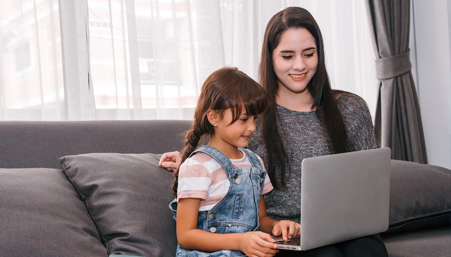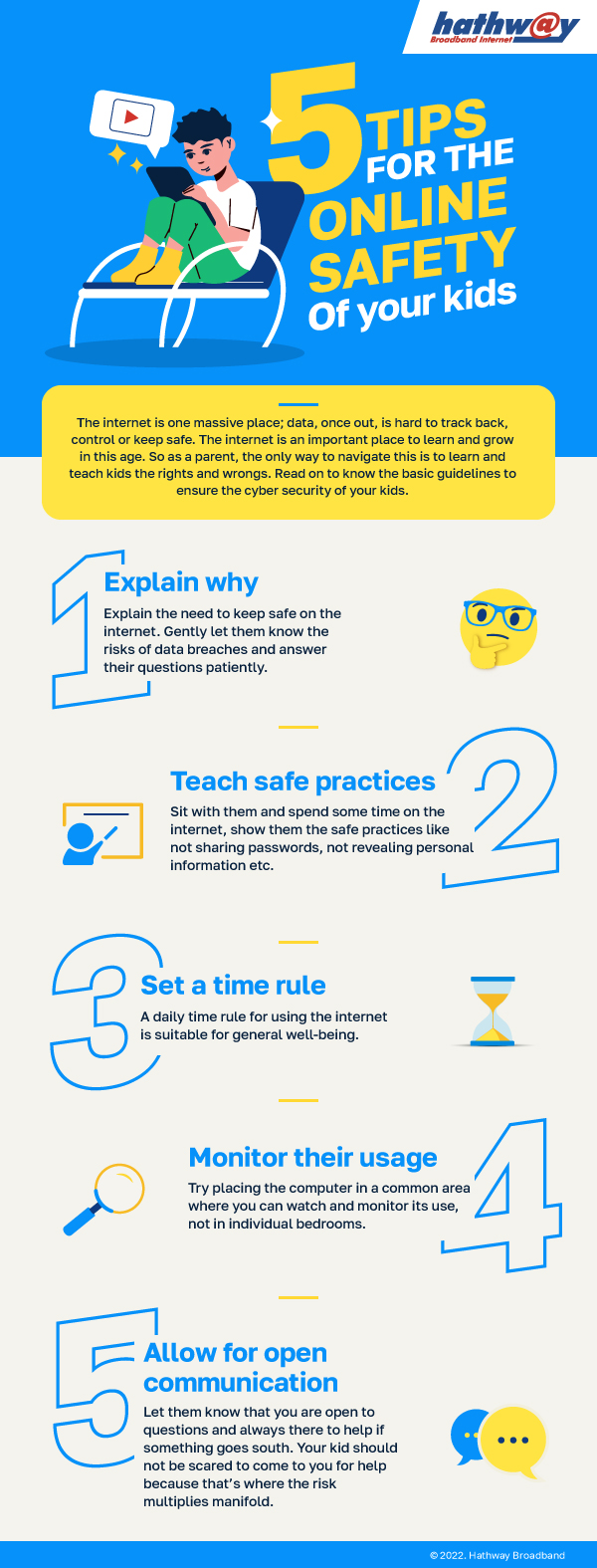6 Easy Ways to Protect Your Kids Online

The number of children using the internet is growing every day. For the most part, this is a good thing! A WiFi connection lets kids access educational material, fun games, and informative videos, and also connects them to their friends. On the other hand, the web is also full of harmful and inappropriate content that anyone would want to protect their child from. It’s extremely important to block access to harmful and unauthentic websites to ensure your child only has access to good online content. This protects their safety and safeguards the privacy of your entire home.
Here, we've listed six easy steps you can follow to secure your internet connection and protect your child from inappropriate content.
Set Up A WPA Security On Your Router
WPA stands for WiFi Protected Access and it doesn't allow anyone to use a WiFi connection unless the access is granted. By doing so, your children will not be able to use the broadband internet connection to view harmful content without your permission.
Limit Administrative Access
Every computer allows you to create multiple accounts. Make sure to set up an administrator’s account and create guest accounts for your children. This way you can control (and view) their actions and secure their internet experience.
Set A Router Password
Though this is obvious, it is still an easy and effective way to limit or control how often your kids can use the home WiFi connection. Create a password that is difficult for kids to guess. If you want to take security a step further, change the password frequently so that your kids can’t inappropriately use the WiFi connection when you’re not home or near them.
Keep Screens Visible
No matter how many parental controls you put into place, if you are unable to view what your child is doing, tech-savvy kids could find a way to bypass internet security measures. To keep track of the content they’re viewing, place the computer in a highly visible and common space in the house, like the living room instead of a bedroom.
Teach Your Kids About Location Privacy
Accidentally revealing your location to an untrustworthy person or website online is very dangerous to your child’s privacy. Sometimes, your children could have the best intentions but might accidentally share your address with a stranger online. To prevent this, sit them down and chat about the importance of keeping your location private. Once they understand the logic behind this, they will be less likely to slip away information about their location.
Block Websites On Your Router
If there are specific websites you do not want your WiFi connection to reach, consider blocking them through your router. Though this process varies slightly according to the kind of router you have. You can follow these steps
- The first step is to log into your router’s settings. You can do this by going to the IP address listed on your router box.
- Once you’ve logged in, find the blocking tool and type in the websites you want to be blocked. Save changes and you would have successfully secured your internet services.
If you’re looking for more ways to change router settings for increased internet privacy, visit Hathway to learn other ways to secure your WiFi internet connection.

